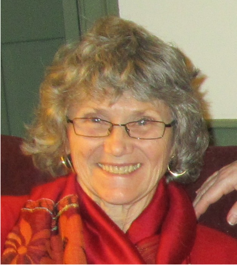CapeWomenOnline - Where Cape Women Shine
Your local venue for the women of Cape Cod to share their ideas, experiences and resources while inspiring each other in their life's journey
Inspire . Encourage . Network . Share
A Word To The Wise And Caring
by Jacquie Scarbrough
If you know and care for someone experiencing a dramatic or a gradual decline in his/her mobility, here is a secret: he/she is almost for certain lonely and lacking spontaneity.
I know, as I was suddenly paralyzed from the waist down three and a half years ago. I worked diligently for two years to regain as much as I could. And then was paralyzed again. I had surgery to remove the blood vessel causing the paralysis in my spinal cord and then worked again with fervor and optimism to recover… but then I fell and broke my hip six months ago.
I think I’ve experienced most of the stages of immobility, including acute hospitalization, rehabilitation hospitalization, physical therapy (in and out patient), and living with wheelchairs and walkers in the “real” world. Mind you, I’ve faced this not once, but I have done it three times!
“Why the loneliness?” you may ask.
The short answer is that you become consumed with your body. All your attention focuses on just moving, trying to make a connection with your damaged nerves. You also need to move to be able to stave off atrophied muscles. Your full focus is “in” rather than “out.” Unfortunately, that leaves friends and family on the “out.” Yes, it’s very lonely.
There are answers, however. Friends and family may come to visit you in the hospital and at the rehab facility. I had a wonderful website on “Caring Bridge” while I was hospitalized, which I highly recommend.
There all my friends and family could send greetings and messages and I could easily respond as well as send out updates on my condition. With my laptop by my bed, I was able to stay connected to the outside world.
After rehab hospitalization, the next step is undoubtedly outpatient physical therapy. That becomes the center of your life, to the exclusion of any social life. Even though you have returned to your home, you remain isolated and dependent because you cannot drive and move enough to get out and about.
However, Caring Bridge allowed me to set up a system to schedule rides to physical therapy sessions, so I could both get out and spend some special time with friends. It felt so good to have a tidbit of social life again, to talk, share, and laugh.

Gradually, I was able to walk with a walker; I no longer needed to use my wheelchair except for longer distances. I had hand controls installed in my car.
But the fact remains, having difficulty walking and standing for long periods – as I do – means isolation.
Imagine finally being able to drive and walk enough to go back to work. You painstakingly walk to your office and sit…and sit. No quick trips to get coffee. No more gaily hanging out with your co-workers. You are stuck in your chair at your desk, feeling alone.
And just try going to meetings - you may have to see if you can walk that far, or get help moving your walker down stairs when you go, or use ramps and find elevators, or drive to the another building and hope there is a handicapped parking spot.
And what about a social life? At the outset, you’ve been hospitalized so you’re out of the “social loop.” People don’t bother to invite you to do things, both because they aren’t certain you can and because you’ve been away. You can’t go to big crowded events for fear you’ll fall.
You can’t stand for long and jabber at cocktail parties. Or, if you use your wheelchair, you’ll need help getting it in and out of a car and once you get there, you’re sitting as people talk over you.
You always have to check out parking and access. Never before did you have to determine if you could get in to an event or even into a friend’s home!
Spontaneity is common among friends, but now you need to plan. Every action now has to be premeditated. Can you get up the front steps without help? Do you need your wheel chair? Can you walk that far? Can you guarantee there will be a chair when you need to sit? Can you get to the rest room?
Frivolity and spontaneity are almost extinct.
Personally, I invite people for dinner, but they often feel guilty that I’m cooking. Friends often suggest going to a restaurant instead, to save me the work, which is fine. I do love to cook, though, both the act of creative cooking and the fact that it was one of the only things that I could still do after my paralysis.
If your kitchen is handicapped-friendly, you too can be creative and socialize: two things that I crave.
This has been my experience to date. As I improve, I’m happy to say I can go out with growing ease and with fewer inhibitions.
I hope that every reader will grasp what a handicapped person is going through and reach out in small ways to reduce their loneliness and help create some extemporaneous fun.
Jacquie Scarbrough of Harwich Port is an advisor, counselor, researcher, teacher, activist, learner and a bit of an artist. She has a master‘s degree in social policy planning and another in educational media and a Ph.D. in developmental psychology. She also studied life coaching.
She has directed university level research to support social policy decisions, been a media consultant to non-profit and educational agencies, been an environmental activist, taught psychology at the college level, and in 2000 started the Cape Cod non-profit for women in transition, WE CAN. She was program director, career counselor, and grant writer at WE CAN from 2001-2008 when she retired.
More recently, Jacquie has been the adult learner advisor at Cape Cod Community College. She has also been an active volunteer on Cape Cod: school councils, United Way Needs Committee, Barnstable County Health & Human Services Advisory Council, Lower Cape Forum for Community Agencies, CAREER (Cape Cod Alliance of Education and Employment Resources), Women in Transition program and Women’s Expo, to name a few.


